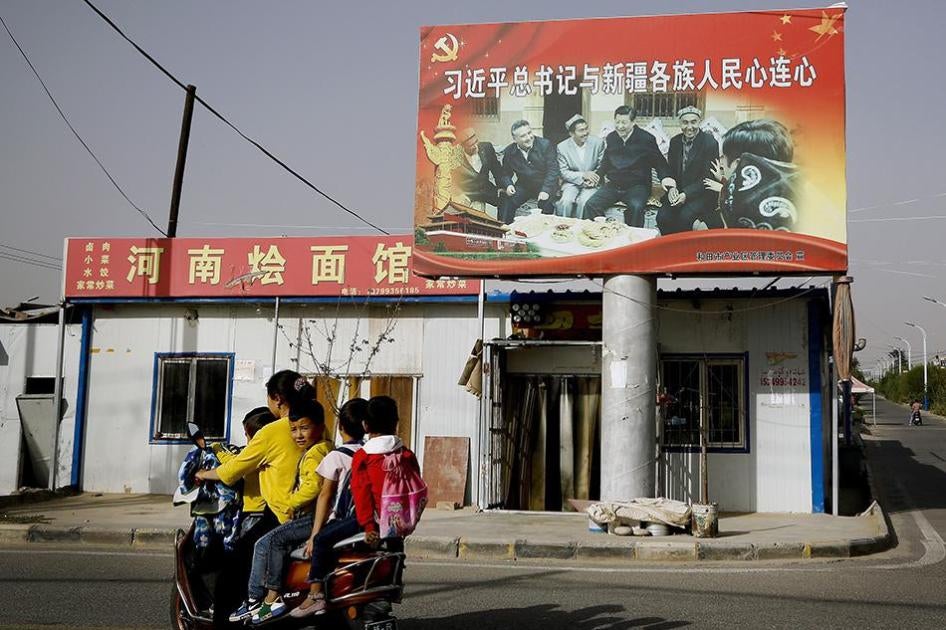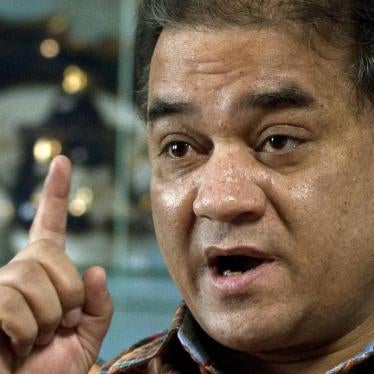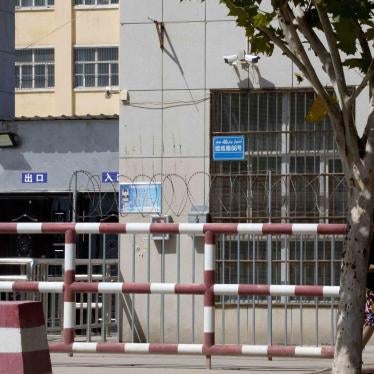Earlier this month, a dozen United Nations experts quietly issued an unprecedented and devastating assessment of the Chinese government’s counterterrorism law. Their critique highlights the way this law is being used to justify gross violations of basic rights and freedoms in Xinjiang, the western region of China. Chinese authorities have arbitrarily detained at least one million Uyghur and other Turkic Muslims there on vague national security grounds.
The assessment is not limited to cataloging highly abusive policies in Xinjiang, such as the government’s branding of religious observance as terrorism, mass detentions of people without due process, or the similarly arbitrary collection of biodata. The UN experts’ analysis strikes at the very core of the government’s justification for the repression of Xinjiang’s Muslims, warning that “disproportionate emphasis placed by the authorities on the repression of rights of minorities risks worsening any security risk.”
The experts concluded that not only does the counterterrorism law flout international human rights standards, but also that anyone affected by these policies – presumably including all those held under them – should have their rights immediately reinstated. The experts offer a stark indictment of the government’s disrespect for human rights: that such practices “deeply erode the foundations for the viable social, economic and political development of society as a whole.”
The assessment is the latest example of growing international concern about China’s repression in Xinjiang. Despite Beijing’s best efforts to convince the world it is merely engaged in preemptive “vocational training” in Xinjiang, in July at the UN Human Rights Council and in October at the UN General Assembly’s Third Committee, two dozen governments expressed grave concerns about China’s approach and called for access to the region for UN High Commissioner for Human Rights Michelle Bachelet. China responded by mobilizing notorious rights violators, including North Korea, Egypt, and Russia, to rebut the allegations and sing its praises.
The UN rights experts’ assessment shows that as more and more details of China’s abuses in Xinjiang emerge and international outrage escalates, China increasingly faces an uphill battle. It also shows that UN mechanisms for protecting human rights need not back down to Beijing’s aggressive efforts to stifle criticism.









